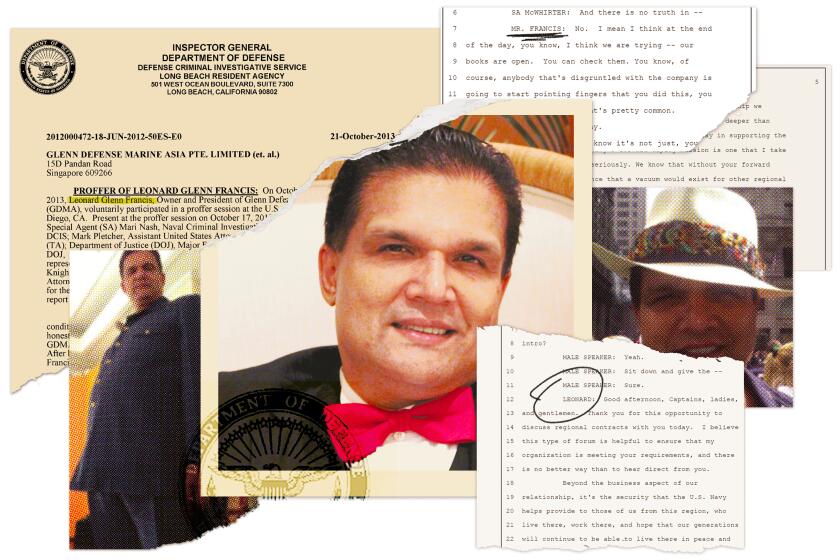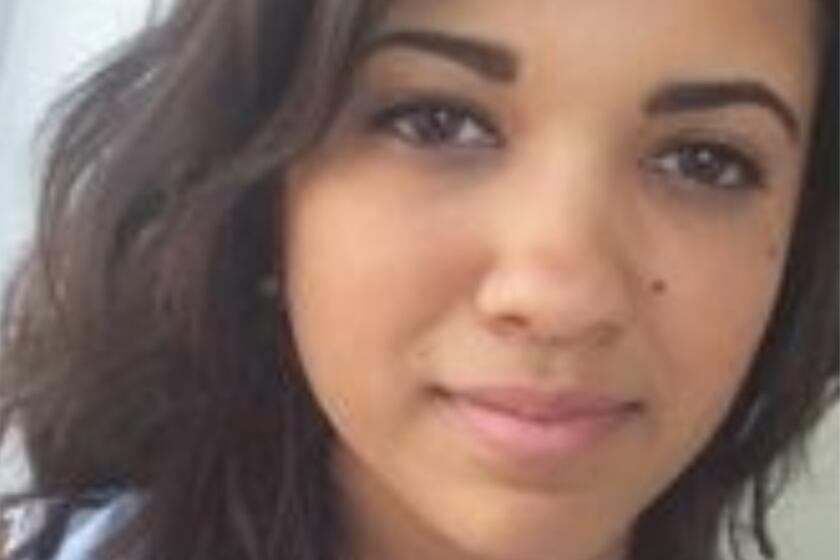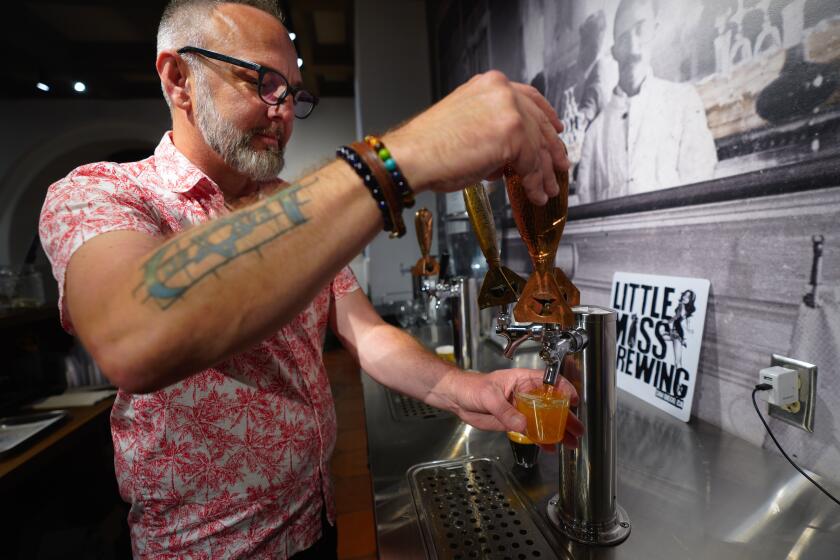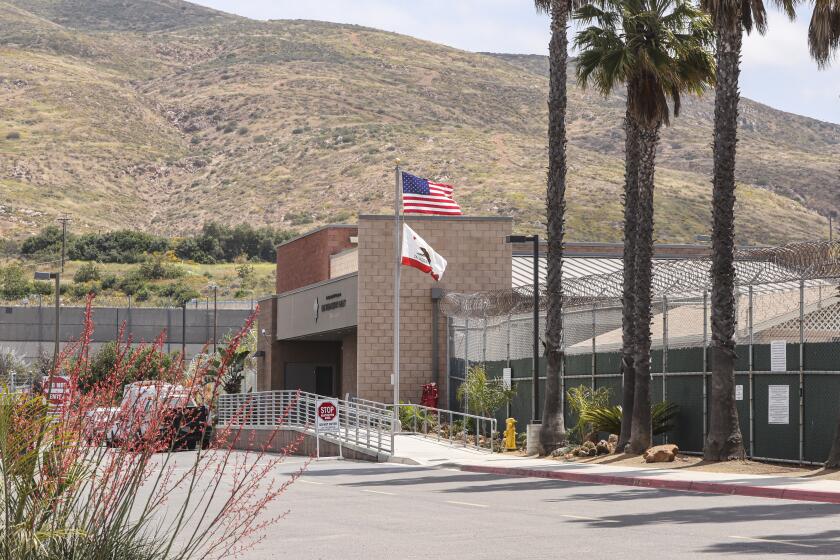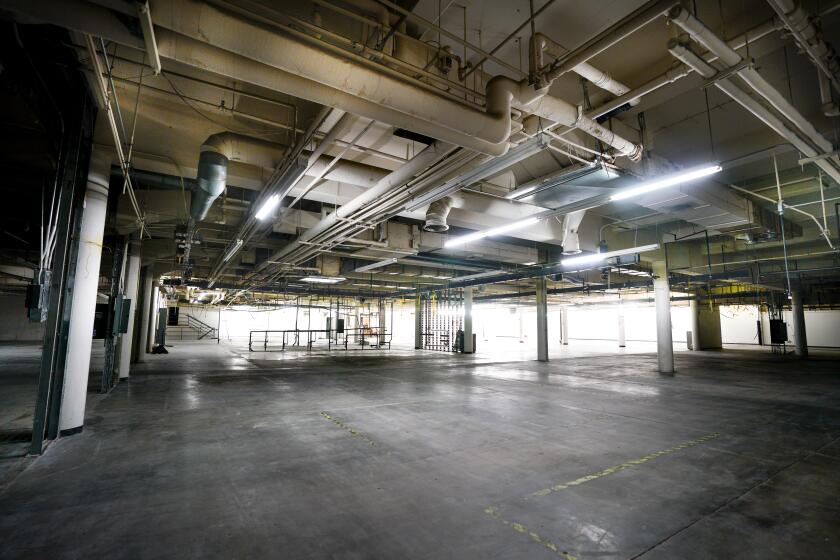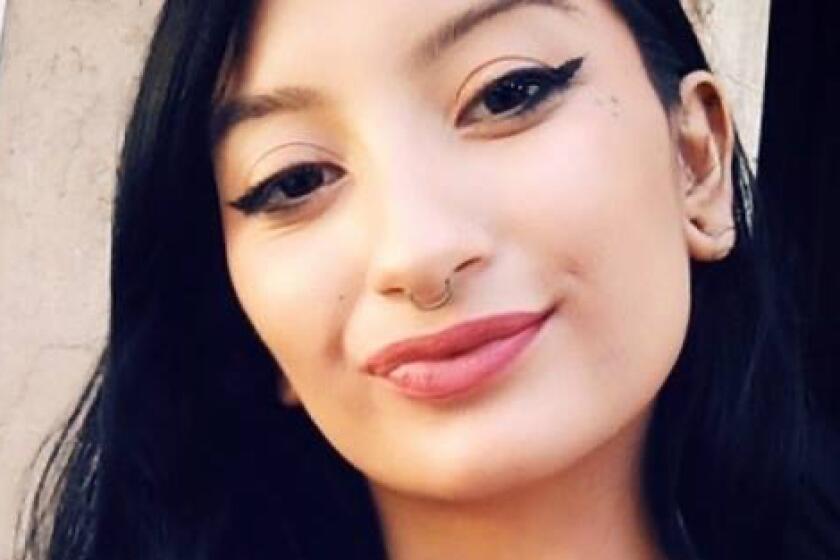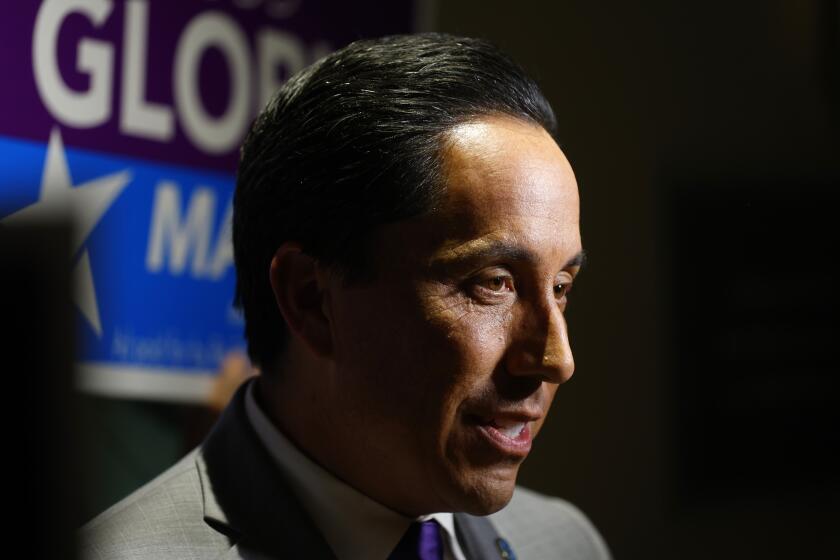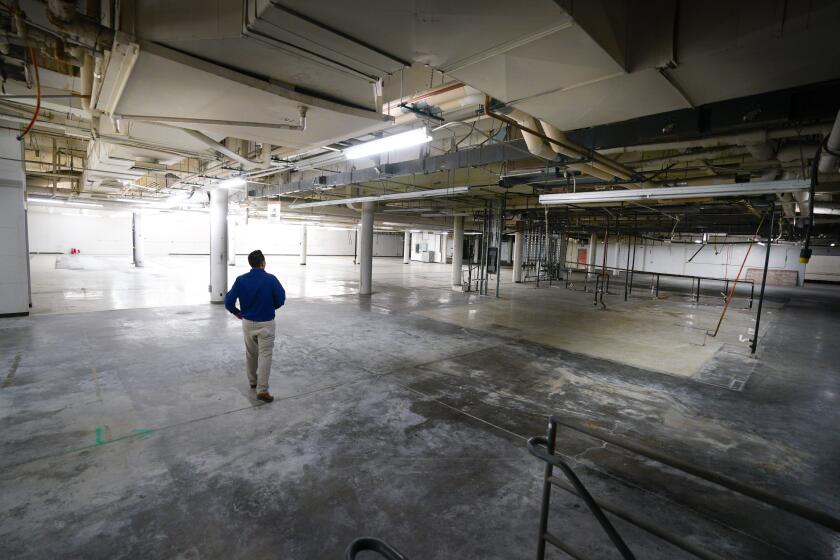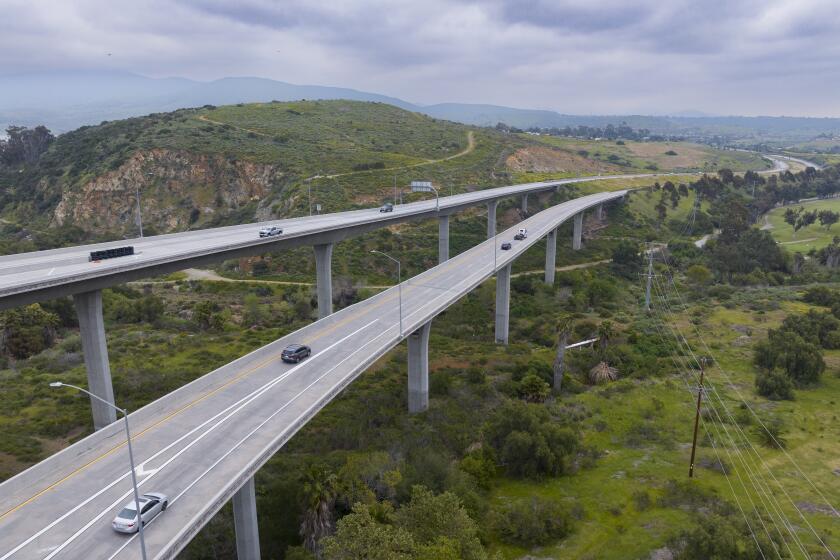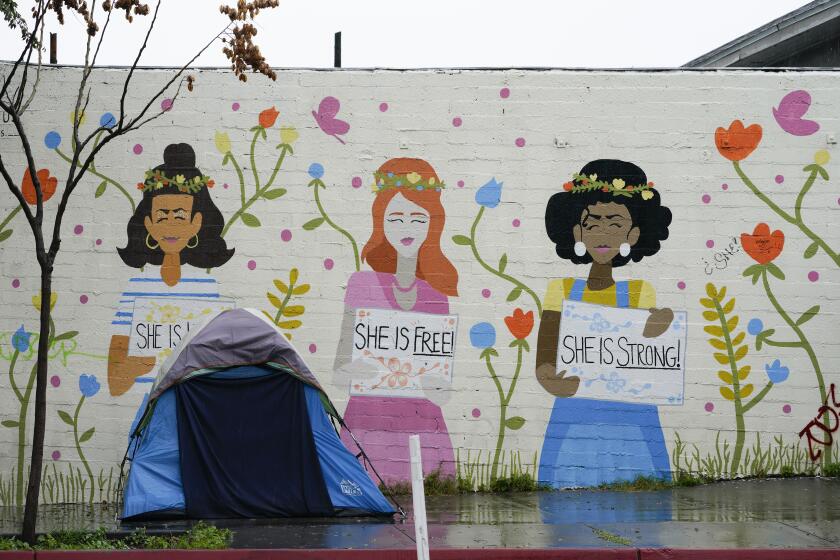More details come out as Azano trial nears
Luxury condos on the waterfront, a marina for yachts and a spacious five-star hotel — glittering new development that would turn San Diego into “Miami West.”
That was the name for the vision that federal prosecutors say that Mexican tycoon Jose Susumo Azano Matsura had for developing San Diego’s waterfront.
It was also the motivation, the government says, for Azano to channel hundreds of thousands of dollars into the 2012 mayoral race, first backing then-candidate and District Attorney Bonnie Dumanis, then switching to eventual winner Bob Filner.
Azano is scheduled to go on trial in federal court in San Diego next week on charges he conspired to make illegal campaign contributions, as a foreign citizen who by law can’t contribute. Three other defendants, including his son, are also on trial for allegedly helping carry out the scheme.
On Thursday, federal prosecutors released a witness list and trial brief outlining their view of the case.
The list is a veritable who’s-who of San Diego political and campaign figures who may end up testifying at the trial, expected to last six weeks or more, in front of U.S. District Court Judge Michael Anello.
The brief also contains some new information about “Miami West.”
Previously, prosecutors had said Filner met with Azano once in August 2012. The brief reveals a second meeting, four days after Filner’s inauguration, this time attended by a “Middle East-based developer” and his partner. Azano had met both of them earlier in a meeting in London, the government said, then convinced them to come to San Diego to meet the newly-elected mayor.
The government also said that after the first meeting with Filner in August 2012, Azano was convinced he had Filner’s support for his development plans.
A witness list produced by prosecutors Thursday morning lists more than 61 witnesses. Of those, more than a dozen are well-known local politicos.
There’s Sheriff Bill Gore, former city councilman and failed mayoral candidate Carl DeMaio, and former state and local Republican Party chairman Ron Nehring.
Who’s not on the government’s list? The politicians most closely identified with the Azano scandal.
Dumanis is not on the list. She met Azano and wrote a letter of recommendation to the University of San Diego on behalf of his son, who is also charged in the case. Azano is accused of surreptitiously and illegally funneling hundreds of thousands of dollars in cash and campaign support to independent committees supporting her. She’s said she knew nothing about the money and services.
Filner isn’t on the list either. Azano also helped Filner’s campaign by funnelling $120,000 to an independent campaign committee, prosecutors allege. The campaign is also accused of benefitting from $190,000 of in-kind campaign work from another defendant, Ravneet Singh, and his campaign consulting company.
Filner met with Azano at the businessman’s Coronado home, and Singh set up an office in Filner’s campaign headquarters to do his work, court records allege.
While Filner, who resigned as mayor under a sexual harassment cloud in 2013, won’t testify, others connected to the campaign will.
On the list are campaign manager Ed Clancy, who sources have said acted for a time as a confidential informant in the investigation. Campaign guru Tom Shepard is also on the list, as is consultant Bill Wachob.
Wachob was Filner’s media strategist for 20 years while he was a Congressman, and during the campaign severed ties with the mayoral campaign to start an independent committee supporting Filner.
Also on the list are figures from Dumanis’s campaign, including her campaign manager Jennifer Tierney and fundraiser Kelli Maruccia.
Longtime Republican consultant Kevin Spillane is also on the list. He was the manager for “San Diegans for Bonnie Dumanis for Mayor 2012, Sponsored by AIRSAM N492RM, LLC,” which received money from Azano, funneled through the AIRSAM company to obscure its origins.
Under the law foreign citizens can’t contribute to U.S. campaigns. The contribution and Azano’s link was first reported in 2012 by San Diego CityBeat. At that time Spillane said the donation was legal because Azano had a green card, which he did not.

JOSE AZANO IS ASKING PROSECUTORS TO TURN OVER VOLUMES OF RECORDS RELATING TO THE INVESTIGATION AGAINST HIM. THOSE RECORDS INCLUDE ANYTHING THAT MIGHT SHOW INVESTIGATORS ACTED NEGLIGENTLY IN HIS CASE. AZANO IS CHARGED WITH ILLEGALLY DONATING $600-THO
Another notable name on the witness list is Robert Hickey, a San Diego prosecutor who is now running for City Attorney.
Hickey is the former president of the labor association for prosecutors. He told the Voice of San Diego news organization in 2014 that in late 2011 or early 2012 he was approached by Ernie Encinas — a retired San Diego police detective who has pleaded guilty to being the conduit for illegal contributions from Azano — who said he was working for a wealthy Mexican who wanted to support Dumanis.
Encinas — also on the witness list and expected to be a key government witness — offered a $500,000 contribution to the PAC sponsored by the prosecutors labor association, which had endorsed Dumanis. Hickey was taken aback and rejected the offer, he told the Voice.
Consultant John Wainio, who works with the labor association PAC, is also on the list. City Ethics Commission Executive Director Stacey Fulhorst, expected to testify about the city’s campaign finance laws, is also listed.
Gore’s special assistant for legislative affairs, Marla Marshall, is listed. Gore also had a meeting with Azano and Dumanis in March 2012 in his office, a meeting that was facilitated by Maruccia, who was also Gore’s fundraiser.
Not everyone listed will be called, and others not listed could be called. It’s not known what witnesses might be called by attorneys for the defendants — Azano, his son Edward, Singh and lobbyist Marco Polo Cortes.
During a hearing Thursday, Anellos rejected a move by Azano’s son to sever his trial from the others and delay it to a later date. He cited health problems — gall stones — as the reason for the delay, but Anellos agreed with prosecutors that separating the trials would be burdensome and inefficient.
Get Essential San Diego, weekday mornings
Get top headlines from the Union-Tribune in your inbox weekday mornings, including top news, local, sports, business, entertainment and opinion.
You may occasionally receive promotional content from the San Diego Union-Tribune.

